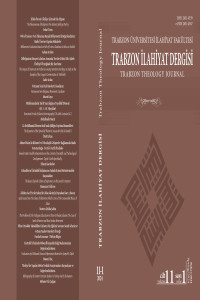Ultra Ortodoks Yahudilikte Kızların Din Eğitimi Sorunu: Sarah Schenirer ve Bais Yaakov Hareketi Örneği
The Problem of Girls' Religious Education in Ultra-Orthodox Judaism: The Case of Sarah Schenirer and Bais Yaakov Movement
Author(s): Funda Kocaman, Türkan BilginSubject(s): Gender Studies, Education, Jewish studies, Sociology, History of Judaism, Sociology of Religion, History of Religion
Published by: Karadeniz Teknik Üniversites - İlahiyat Fakültesi
Keywords: History of Religions; Ultra-Orthodox Judaism; Religious Education; Bais Yaakov; Sarah Schenirer;
Summary/Abstract: In the ultra-Orthodox Jewish tradition, there are different types of schools for men and women, providing education for their varying social and religious roles. This difference is particularly visible in the religious education curricula. Until 1917, the religious education that women were able to receive, albeit to a lesser extent than the religious education received by men, was not systematised. In the late nineteenth century, the rapidly growing interest in the secular world among girls was mainly characterised by the lack of religious education for Jewish girls, and Sarah Schenirer (1883-1935) found it necessary to open religious schools for Jewish girls as a solution. With this initiative, Schenirer called for change in an anti-innovationist culture and aimed to help Ultra-Orthodox girls retain their Jewish identity and remain connected to the community. To this end, Schenirer founded the first Bais Yaakov school in 1917, and within a few years the school grew rapidly into an extensive “network of schools” across Europe, and became known as the Bais Yaakov movement. This initiative acted as the domino that initiated the change in the addressee profile of religious education within the anti-innovationist Ultra-Orthodox Judaism. In this respect, knowing Sarah Schenirer is key to analysing how Bais Yaakov legitimised itself within Ultra-Orthodox Judaism and how this innovation in girls’ education found a foundation within a tradition that seemed to lack the necessary resources and support. Considering that there are not enough studies on religious education in Ultra-Orthodox Judaism in Turkey, we believe that this study on the educational activities of Bais Yaakov will contribute to the field of history of religions.
Journal: Trabzon İlahiyat Dergisi
- Issue Year: 11/2024
- Issue No: 1
- Page Range: 219-241
- Page Count: 23
- Language: Turkish

